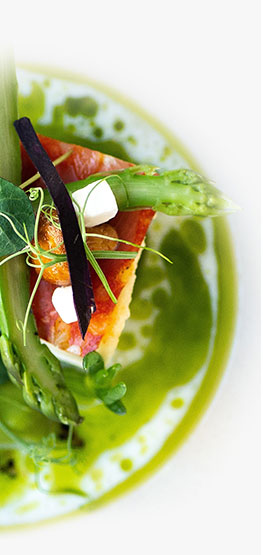Overview
Restaurant Views: 469
Awards
- Ramen Beast
-
Ramen Beast, #4.0
Cuisine
Maruchō Style Shoyu
Foodle Reviews
えのき入つけそば / Enoki-iri Tsukesoba / Maruchō — Isesaki, Gunma
Tokyo style shoyu soup relies heavily on kombu, pork bones and gyokai, including katsuobushi. The noodles are house-made. Served with enoki mushrooms, negi, half ajitama and sesame seeds. Gyoza on the side.
Maruchō Isesaki is a Chinese restaurant, aside from ramen and tsukesoba there are a number of stir-fried Chūka style dishes on the menu. Part of the Maruchō Norenkai group, meaning direct relations to the original... More
えのき入つけそば / Enoki-iri Tsukesoba / Maruchō — Isesaki, Gunma
Tokyo style shoyu soup relies heavily on kombu, pork bones and gyokai, including katsuobushi. The noodles are house-made. Served with enoki mushrooms, negi, half ajitama and sesame seeds. Gyoza on the side.
Maruchō Isesaki is a Chinese restaurant, aside from ramen and tsukesoba there are a number of stir-fried Chūka style dishes on the menu. Part of the Maruchō Norenkai group, meaning direct relations to the original Maruchō which opened in Ogikubo, Tokyo in 1947. This is the only branch in Gunma Prefecture. 73 seats. Open since February 1966. @maruchou_isesaki Less
つけ麺 + ギョーザ / Tsukemen + Gyoza / Maruchō — Tsukuba, Ibaraki
Tokyo style shoyu soup uses 10 different ingredients including pork, chicken and various gyokai (seafood). Medium width wavy noodles are house-made. Pork chashu, menma, negi, togarashi. Yaki gyoza on the side.
Master Arai-san trained Maruchō in Kami-Ikebukuro (open 1968-1981), however this branch is not officially listed as part of the Maruchō norenkai group. 30 seats. Open since 1978.
ラーメン + ぎょうざ + チャーハン / Ramen + Gyoza + Chahan / Marushin Chūka Soba - Kunitachi, Tokyo
Old school shoyu ramen, soup consisting mostly of chicken carcasses and niboshi. The master trained at the legendary Marushin in Ogikubo, which was opened in 1950 by one of the five original masters of Maruchō in Ogikubo. Marushin at one point had nine different norenwake shops, most of them have now closed. Family-run, 21 total seats. Open since 1965.
Recommended bowl: Since 1947
Maruchō is a legendary ramen shop within the Tokyo scene, considered the birthplace of tsukemen. The shop was established in 1947, opened by a group of five soba masters who came from Nagano Prefecture. According to local legend, when the five original masters first opened the shop, during staff meals it was common for them to eat leftover ramen noodles in a similar way to Japanese soba, by 'dipping' the noodles in a soup, served separately. Within a few years of the... More
Recommended bowl: Since 1947
Maruchō is a legendary ramen shop within the Tokyo scene, considered the birthplace of tsukemen. The shop was established in 1947, opened by a group of five soba masters who came from Nagano Prefecture. According to local legend, when the five original masters first opened the shop, during staff meals it was common for them to eat leftover ramen noodles in a similar way to Japanese soba, by 'dipping' the noodles in a soup, served separately. Within a few years of the shop opening, four of the five masters left to open their own shops, with original master Aoki-san staying to run Maruchō. One of the original masters who did this was Sakaguchi-san, who established Taishōken in Nakano with his cousin, Yamagishi-san. Eventually Yamagishi-san was the first chef to actually put tsukemen on the menu (in the form of 'Mori Soba') in 1955. Soon after other shops like Maruchō quickly followed suit, and tsukemen eventually became a phenomenon in the ramen world. It is now what Maruchō is most known for, although ramen is still the original dish on the menu. The bowls here are pure nostalgic Tokyo, containing a soup of chicken, pork and vegetables with a nice shoyu tare. Noodles are house-made, served just slightly softer than average. Shumai dumplings on the side also recommended. Only open for lunch a few hours per day, and always a line. Original master Aoki-san's son (who is now close to 80 years old) still runs the shop, with the help of his family. There are numerous other Maruchō shops around Tokyo as well, most of them directly connected or related to this shop. A historical site in the Japan ramen world. Less
Recommended in Tokyo
-
- Sushi Saitou (鮨 さいとう)
- Japan, 〒106-0032 Tokyo, Minato City, Roppongi, 1-chōme−4−5, ARK Hills South Tower, 1F
-
OAD 4Tabelog GoldWB50 Asia 2024 #60LL #1RR #44RR PRO #19.67RR USER #18.00Eatinerary's
-
54 Meals
-
- Hato (波濤)
- 5 Chome-7 Kagurazaka, Shinjuku City, Tokyo 162-0825, Japan
-
OAD 93Tabelog BronzeRR #2065RR PRO #16.67RR USER #0.00
-
25 Meals
-
- Nihonbashi Kakigaracho Sugita (日本橋蛎殻町 すぎた)
- Japan, 〒103-0014 Tokyo, Chuo City, Nihonbashikakigarachō, 1-chōme−33−6 ビューハイツ日本橋 地下1階
-
OAD 9Tabelog GoldWB50 Asia 2024 #66LL #50RR #105RR PRO #19.33RR USER #17.50
-
31 Meals
-
- Sazenka (茶禅華)
- 4-chōme-7-5 Minamiazabu, Minato City, Tokyo 106-0047, Japan
-
oOAD 18Tabelog GoldWB50 #93WB50 Asia 2024 #39LL #8RR #44RR PRO #19.67RR USER #18.00
-
30 Meals
-
- Ode
- Japan, 〒150-0012 Tokyo, Shibuya City, Hiroo, 5-chōme−1−32 ST広尾 2F
-
OAD 155RR #5187RR PRO #14.55RR USER #0.00
-
16 Meals
Address
Japan, 〒167-0051 Tokyo, Suginami City, Ogikubo, 4-chōme−31−12 丸長中華そば
Hours
Phone
03-3391-7518


